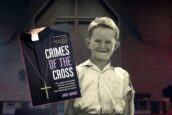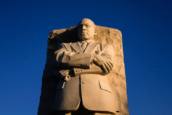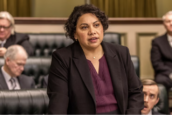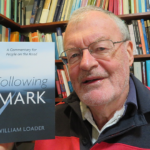
Adrian Drayton spoke with actor David Wenham — who starred in the film Oranges and Sunshine — on the eve of the film’s release on DVD.
Oranges and Sunshine tells the story of Margaret Humphreys, a social worker from Nottingham who uncovered one of the most significant and heartbreaking social scandals of recent times: the deportation of thousands of children from the United Kingdom to Australia.
Almost single-handedly, against overwhelming odds and with little regard for her own wellbeing, Margaret reunited thousands of families, brought authorities to account and drew worldwide attention to an extraordinary miscarriage of justice.
Children as young as 4 had been told that their parents were dead. They were sent to children’s homes on the other side of the world. Many were subjected to appalling abuse.
They were promised oranges and sunshine: they got hard labour and life in institutions.
What attracted you to the script?
Initially I read the script with interest to play Len. When I read the script I was aware of the forgotten children, but not to the extent that did actually occur, so reading the script was a huge surprise and education.
The character of Len completely intrigued me and then I was fortunate enough to meet the director Jim Loach in London. He talked to me at great length about his search and how he’d written the script with Rona [Munro] over a very long period and what he intended to do with the film and I was completely sold.
An extraordinarily large amount of children were deported (130,000). It was an enormous tragedy.
How did you research the character of Len?
The first thing I did was read the book by Margaret Humphries, Empty Cradles. And then Jim set up a trip to Perth to meet a gentleman on whom my character is very loosely based.
He was just the most tremendous help. He was extremely generous with his time and we spent two days together whereby he drove me to the real Bindoon, the same sort of trip that Len takes in the film with Margaret Humphries (Emily Mortimer).
I went on that trip with this gentleman and exactly the same sort of thing happened. We stood at the top of the hill and looked down on the place.
We walked down to Bindoon and he told me stories about friends of his who’d gone there and then he took me to another place as well, much closer to Perth, where he actually went.
And then we also went to the child migrants’ house in Perth, which Margaret Humphries set up, which was extraordinary actually. And I had access to photographs and I was instantly taken back to the time when this policy was put in place.
The scene in the film where Len takes Margaret to Bindoon is very much about how Len had risen above the abuse to prove to the brothers that he had made something of himself. Would you agree with that?
Absolutely. The man I met (in research to play the part of Len) would never regard himself as a victim.
Even in spite of his enduring a relatively horrendous upbringing, he doesn’t regard himself as a victim but as a success and even now he gives the brothers quite a lot of credit for some of the things that he’s achieved throughout his life.
He has forgiven them in the sense that he has decided to put a positive spin on everything but it is a psychological minefield really.
I was fascinated by the way he handled his plight. Obviously the character within — as Margaret mentions in the film — there is still a hurt little boy in there. That’s pretty obvious; he’s built these barriers and barricades around him over the years.
Margaret Humphries continues to advocate for the migrants and your character in the film — Len — has a really interesting relationship with her; your character, by exposing her to Bindoon, encourages her to continue.
Margaret Humphries still goes to Perth and she travels the world advocating for these people — this is her life. And she is still completely hands-on with the Child Migrants Trust in Perth.
She’s there many months of the year. She is a remarkable woman and in terms of the contact the people have — they have access to her whenever they need her.
That’s the interesting thing about the film from [the migrants’] perspective. I was talking to a few of them once the film was released and they were very honest and said they were aware, to some extent, what this woman had given up for them but it wasn’t until they saw the film and it was revealed to them quite starkly how much this woman had actually sacrificed of her own life.
They then realised how profoundly this woman put her whole life on hold to help them. That was very moving to hear. The film is a great tribute to Margaret.
During the time when the filming in the UK and Australia was happening, both governments issued a formal apology to the migrants. Do you think it’s a coincidence?
Look I honestly don’t know. One can only say that the timing was interesting. If it’s the case, hats off to the filmmakers but it just shows that the power of film and the power of art can actually change things — if that’s the case but I don’t know.
What would you like people to take away from the film?
With anything that I’m involved with I never like to be prescriptive. I think it’s up to the person to take away whatever they want to because we all see things from a different perspective of course and have different opinions.
Suffice it to say that I can’t tell you how many people who come up to me and say they’ve seen the film and said they have been moved and provoked by it and it has made them talk about something that, in a lot of cases, they weren’t actually aware of before.
It has this transformative effect on people.
So that’s a great achievement for the filmmakers.
Adrian Drayton
- Categories: Features




























































